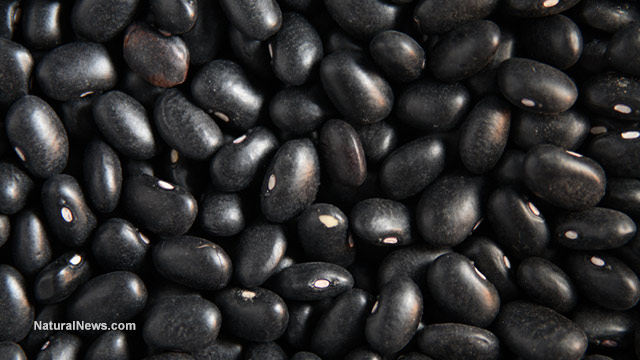Bad eating habits may cause blindness, warn researchers
07/21/2020 / By Zoey Sky

There’s no denying that eating junk food is bad for your health, as it’s linked to obesity and an increased risk of various health problems. A report in the Annals of Internal Medicine even found that a diet full of junk food could eventually cause vision loss.
Researchers from the University of Bristol in the U.K. looked at a particular case involving a teenager who was a “fussy eater” and didn’t eat anything except junk food. Several years of following an unhealthy diet eventually made him lose his eyesight.
This unusual and shocking case highlights the dangers of an unhealthy diet. It can cause obesity and increase your risk of developing heart disease and cancer. The report also found that consuming junk food may “permanently damage the nervous system, particularly vision.”
The adverse effects of poor eating habits
The teen first experienced problems when he was 14, and he consulted a doctor due to symptoms like tiredness. His blood tests then revealed that he had anemia.
Since the teenager had B12 deficiency, he was also treated with injections of the vitamin. His physician then told him to improve his eating habits.
When the teenager turned 15, he reported more issues like hearing loss and vision problems. His physicians were baffled because the results from an MRI and eye exam were all normal. (Related: Cut the junk: Eating junk food can give you food allergies.)
After two years, the teenager’s vision worsened. At 17, an eye test revealed that his vision was 20/200 in both eyes: The threshold for being considered “legally blind” in America. Results from other tests revealed that the teenager also suffered damage to his optic nerve, the bundle of nerve fibers that connects the back of the eye to the brain.
Despite being told to improve his eating habits when he was 14, the teenager still had a vitamin B12 deficiency. Worse, he also had low levels of copper, selenium and vitamin D. The physicians were alarmed at these deficiencies.
After questioning the teenager, they found out that he didn’t like eating “certain textures of food.” Since elementary school, the patient followed a limited diet that consisted only of foods such as:
- Chips
- Fries
- Processed ham slices
- Sausage
- White bread
Once the doctors ruled out other possible causes for his vision loss, the patient was diagnosed with nutritional optic neuropathy or damage to the optic nerve because of nutritional deficiencies. The researchers noted that “[purely] dietary causes are rare in developed countries.” Most of the time, nutritional optic neuropathy is caused by alcohol abuse, drugs, poor diet or the malabsorption of food.
Early detection can potentially reverse vision loss due to nutritional optic neuropathy. But unfortunately for the teenager, by the time his condition was diagnosed, his vision loss was permanent.
Dr. Denize Atan, a senior lecturer in ophthalmology at Bristol Medical School and a co-author of the study, explained that eyeglasses wouldn’t help the patient’s vision since any damage to the optic nerve can’t be addressed with lenses. To prevent his vision loss from worsening, physicians prescribed the teenager nutritional supplements.
Avoidant-restrictive food intake disorder and mental health
The doctors involved in the patient’s case also referred him to mental health services for an eating disorder because there seemed to be more to his unusual diet. Unlike kids who were simply picky eaters, the teenager’s diet “was very restrictive and caused multiple nutritional deficiencies.”
They believe that the teenager might have a condition called “avoidant-restrictive food intake disorder” (ARFID). This relatively new diagnosis, previously called “selective eating disorder,” may cause a lack of interest in food or avoidance of foods with certain colors, textures or other factors without links to the patient’s body weight or shape.
Other symptoms of ARFID include:
- Abdominal pain, cold intolerance, constipation, lethargy or excess energy
- Dramatic restriction in amount or types of food eaten
- Dramatic weight loss
- Eating only certain textures of food
- Eating a limited range of preferred foods that becomes narrower over time or picky eating that worsens with time
- Fears of choking or vomiting
- Inconsistent and vague gastrointestinal issues, like an upset stomach, around mealtimes with no known cause
- No body image disturbance or fear of weight gain
ARFID often manifests in childhood, and patients tend to have a normal body mass index (BMI) like the teenaged boy, concluded the study authors.
Follow a healthy diet and eat fresh fruits and vegetables to prevent vitamin deficiencies and improve your overall well-being. For more articles about the dangers of a poor diet and how to avoid health problems linked to junk food, visit FastFood.news.
Sources include:
Submit a correction >>
Tagged Under:
ARFID, avoidant-restrictive food intake disorder, blindness, eating disorders, eye health, fast food, french fries, picky eaters, poor nutrition, potato chips, research, toxic food, toxic ingredients, vision loss, vitamin deficiency
This article may contain statements that reflect the opinion of the author
RECENT NEWS & ARTICLES
COPYRIGHT © 2017 TOP 10 GROCERY SECRETS





















